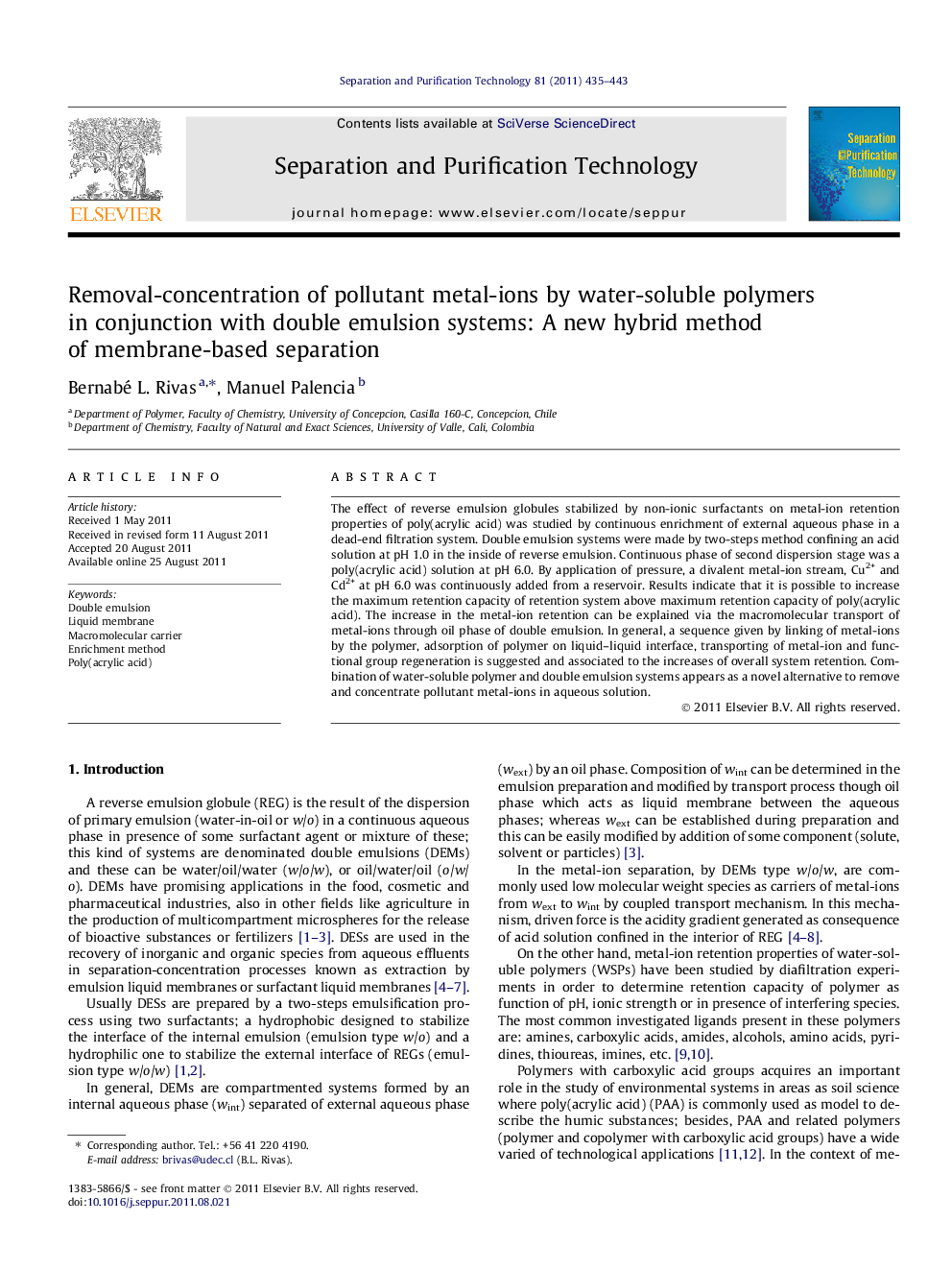| Article ID | Journal | Published Year | Pages | File Type |
|---|---|---|---|---|
| 642531 | Separation and Purification Technology | 2011 | 9 Pages |
The effect of reverse emulsion globules stabilized by non-ionic surfactants on metal-ion retention properties of poly(acrylic acid) was studied by continuous enrichment of external aqueous phase in a dead-end filtration system. Double emulsion systems were made by two-steps method confining an acid solution at pH 1.0 in the inside of reverse emulsion. Continuous phase of second dispersion stage was a poly(acrylic acid) solution at pH 6.0. By application of pressure, a divalent metal-ion stream, Cu2+ and Cd2+ at pH 6.0 was continuously added from a reservoir. Results indicate that it is possible to increase the maximum retention capacity of retention system above maximum retention capacity of poly(acrylic acid). The increase in the metal-ion retention can be explained via the macromolecular transport of metal-ions through oil phase of double emulsion. In general, a sequence given by linking of metal-ions by the polymer, adsorption of polymer on liquid–liquid interface, transporting of metal-ion and functional group regeneration is suggested and associated to the increases of overall system retention. Combination of water-soluble polymer and double emulsion systems appears as a novel alternative to remove and concentrate pollutant metal-ions in aqueous solution.
Graphical abstractFigure optionsDownload full-size imageDownload as PowerPoint slideHighlights► Reverse emulsion globules stabilized by non-ionic surfactants. ► Effect of double emulsion on metal ion retention properties of poly(acrylic acid), PAA. ► Metal ion transport by poly(acrylic acid) during enrichment of external aqueous phase of w/o/w. ► The system retention capacity can be increased above the polymer maximum retention capacity.
